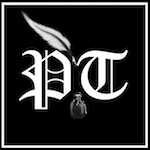Silence holds as silence does
when the first student enters.
The lights eerily flicker on,
fully rescinding the drab.
My comrades clamber in
with chattering that disturbs the peace.
Gloves first, then scalpel blades gathered,
instructor books and an atlas.
What yearning and churning my mind feels,
unsure what learning to expect.
I disentangle the linen.
“Good morning,” I say.
Good morning, from Thought.
“What today?” I inquire.
You’re the ‘doctor,’ are you not?
At first I feared the stony complexion —
that silence, that unsettling shade —
but time has taken its useful toll
on my evolving impressions.
And still, though emotion tampered,
when I look, my amygdala replies;
I clench my jaw, count to three
and abate the uncertainty.
“I confront thee, O Death,
with scalpel blade drawn.
I surrender to your reign,
but find peace in this act.
I choose to challenge my mind
and accept you as fact.”
Those that follow in the footsteps of Galen
must divide intellect and sentiment
yet appreciate their intertwining.
Full of complexity: this, and many trials ahead.
A note: The humanity of the cadaver lab can easily be overlooked in medical classrooms. We dive right in to the anatomy and science of it all but can forget to confront the emotional interplay. Death, purpose, and reality are at the cornerstone of each medical student’s learning, and what we experience in dissecting a cadaver is deeply humbling. By way of artistic expression, I felt that I was able to process the emotional responses I was having in the lab. Medical students may similarly benefit from being encouraged to find creative ways of embracing their human thoughts and diverse interpretations.
 Poetry Thursdays is an initiative that highlights poems by medical students and physicians. If you are interested in contributing or would like to learn more, please contact our editors.
Poetry Thursdays is an initiative that highlights poems by medical students and physicians. If you are interested in contributing or would like to learn more, please contact our editors.
